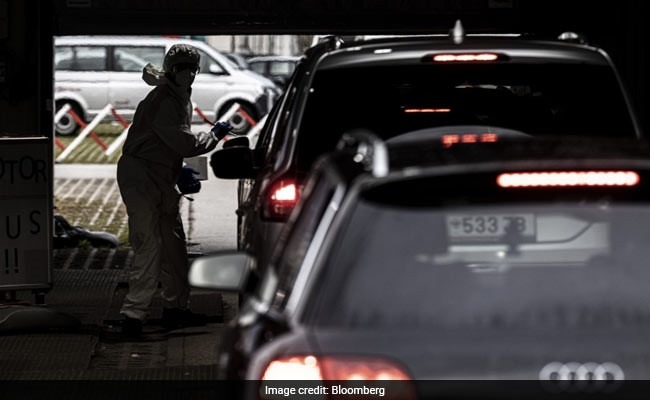| Translate This News In |
|---|
Austria is putting unvaccinated citizens on lockdown beginning Monday, the most draconian measure taken by a Western European country to combat the coronavirus’s latest epidemic.
Nearly two million infections were reported in Europe last week, the most in a single week since the outbreak began. The Netherlands and Latvia have imposed new restrictions after the number of cases hit new highs, while Germany is considering new restrictions.
Governments around the world are increasingly looking for ways to force more people to get inoculated, from placing unvaccinated persons on forced leave to refusing to pay for their medical care, in order to return things back to normal.
Chancellor Alexander Schallenberg remarked during a press conference in Vienna that Austria’s “shamefully low immunisation rate” must be addressed. “This is not an easy decision for us. It is, nonetheless, unavoidable.”
What Does Austria’s New Vaccination Ban Mean?
People who have not been immunised will be able to leave their homes solely to work, study, respond to medical requirements, buy groceries, or get some fresh air.
Unvaccinated people who visit retail stores or theatres without being vaccinated face fines of up to 500 euros ($572). Businesses who break the new restrictions face fines of up to 3,000 euros. Those who conspire to intentionally circumvent restrictions could face a fine of up to 30,000 euros.
Police inspections may be undertaken on anyone, according to Austria’s Interior Ministry, therefore even inoculated persons should not leave their houses without proof of vaccination.
Vaccinated people can still shop, eat, and go to cultural events. The new laws are estimated to cost up to 350 million euros in sales per week, according to business organisations.
The new rules will be in effect until November 24th at the earliest.
Only roughly 65% of Austrians are completely vaccinated, one of the lowest rates in Western Europe and well below the levels needed to build herd immunity against the virus.
Austria’s vaccination rate is somewhat lower than that of its neighbours France and Italy, but it is significantly higher than that of much of Eastern Europe. Approximately 43% of Slovakians are properly vaccinated, despite the country’s capital Bratislava being only 50 miles from Vienna.
Austria’s seven-day average of Covid cases has risen to over 10,000 this month, making it one of the world’s most infected countries. Saturday saw a new high of 13,152 instances reported. Austria’s seven-day infection rate of 775 new cases per 100,000 people is significantly higher than Germany’s 289 new cases per 100,000 people, where officials are attempting to limit the virus.
According to media reports, German politicians aim to mandate that corporations allow employees to work from home whenever possible, while the military has deployed thousands of troops to aid overburdened medical institutions. Germany has designated Austria as a high-risk zone, requiring unvaccinated visitors to be quarantined upon their return.
The Netherlands is likewise on partial lockdown, with early closings of bars, shops, and restaurants, but no special treatment has been given to the unvaccinated. Latvia has closed pubs and businesses, instituted curfews, and resumed student distance learning.
Following a recent tightening of rules in Austria, anyone without confirmation of vaccination or recovery from Covid are now barred from various events, including concerts, restaurants, and bars. Life is relatively normal for those who have been vaccinated, though masks are required indoors, such as subways and stores, and social separation is urged where possible.
During the early stages of the epidemic, returning skiers disseminated the virus across northern Europe and as far as Iceland, making Austria one of the world’s coronavirus hotspots.


















